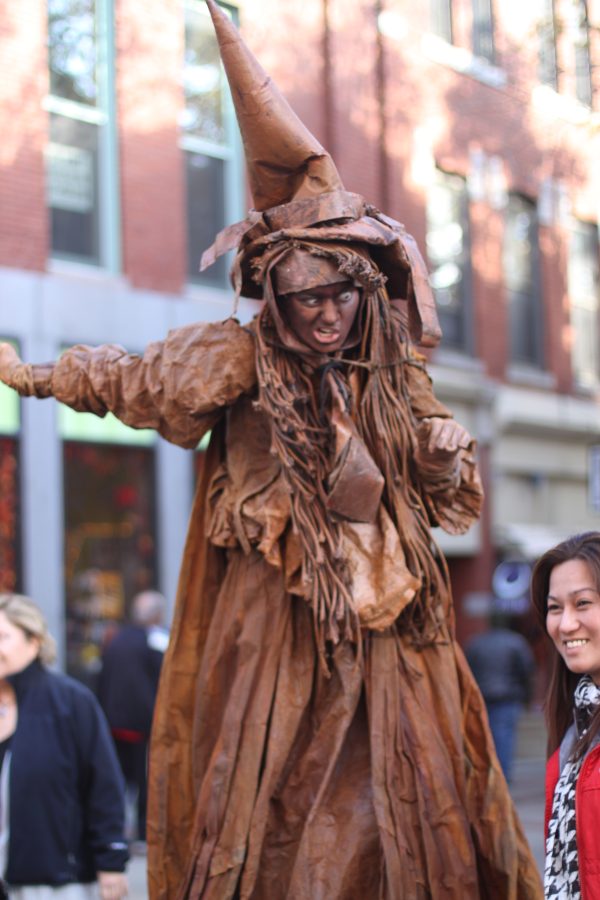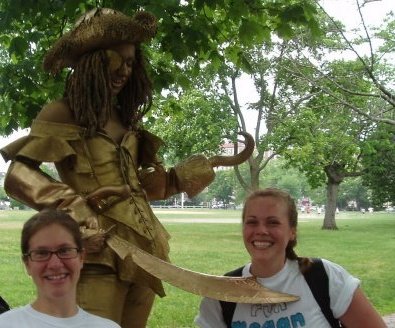Up until recently, I was working full-time as a professional human statue; a street-performer, or “busker.”
I lived in Provincetown during the summer and Dorchester for the rest of the year. I worked in Salem for the Halloween season, and I performed at a series of street festivals in Worcester and Marblehead throughout the fall. I busked in Miami and Jacksonville, Florida one year, and another year I stayed home and worked in Boston, flexing my muscles with the teeniest movements possible in order to stay warm in the damp fifteen-degree weather.
I made the decision to quit busking when I got pregnant; it is not the sort of work that a person can do well when they want to throw up every three minutes, and babies aren’t particularly good at nomadism. The thing is, I still miss busking intensely. I miss the crowds and the craft into which I poured every essence of my being for six years of my life.
I believe everyone should try busking at least once. Busking is a public service, and public art makes the world a better place. “Street performing really enlivens the square and is good for the community,” said Julie Barry, director of the Cambridge Art Council’s street performer program. “If you have a strong street presence, you’re going to draw more foot traffic.”
Busking, when done right, has the potential to make large groups of people happy, and it chips away at the isolation of modern life. Busking gives people an excuse to pull their headphones out of their ears and watch a show with hundreds of people who we would otherwise be doing our best to ignore on a crowded train.
Busking for a living allows you to set your own schedule to a certain extent and do fun activities for money. Sure, it also means that strangers will say horrible things to you, crazy people may assault you, and you could potentially end up making less than minimum wage. But, in the end, all jobs have their ups and downs.
“[It’s] great way to supplement your income,” said Barry, who describes busking in Cambridge in glowing terms, referring to the right to perform in public as a “first amendment right.” Barry brags that performers come to Harvard Square from all over the world.
Tireless advocates and hospitable public administrators like Barry simply don’t exist in the rest of the world; performers get hassled from Manhattan to Athens, just for trying to earn their living by busking. In other cities, busking is illegal, heavily regulated, or flat-out ignored. Boston is one of few places where people are truly free to perform on the street.
In Boston, people can busk in any public area without a permit, and they can get a permit to perform in Cambridge. Instructions on obtaining a permit to perform in Cambridge can be found at www2.cambridgema.gov/CAC/Permits/Permits.cfm.
Most importantly, people can promote busking by being good audience members. Make it possible for buskers to earn a living by not trying to talk to buskers while they are working and not standing for long periods of time between them and their audience. It is in good taste to leave a tip if you get up close to a performer and take a picture or dance to their music.






















































